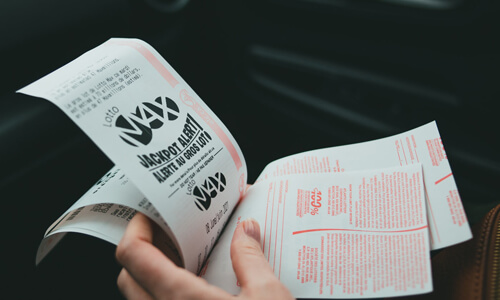When the Mega Millions and Powerball jackpots hit multi-million-dollar territory, it’s only human to dream about what you’d do with all that money if you had the winning ticket. Fantasies of buying a second home, owning your dream car or retiring early grow even more fantastic as these jackpots exceed a billion dollars.
But hold on! Before you get carried away, consider your odds of winning a big jackpot versus other, more reliable ways to grow your net worth.
What are your chances of winning a lottery jackpot?
You don’t have to guess the odds. The two big multi-state lotteries reveal your chances on their websites: According to their respective sites, you have a 1 in 302.6 million shot at winning the Mega Millions jackpot and a slightly better chance at scoring the Powerball jackpot with 1 in 292.2 million odds. For either lottery’s $1 million prize, the probability improves to around 1 in 12 million. None of these odds are in your favor.
As morbid as it sounds, Americans are more likely to die from everyday events like a bee sting (1 in 54,516) or a dog attack (1 in 53,843), according to the National Safety Council (NSC). At 1 in 4.3 million, even the extremely low odds of getting bit by a shark are still almost 100 times more likely than hitting the Mega Millions or Powerball jackpots and more than three times greater than the chance of winning either of their $1 million prizes.
Despite these odds, if you choose to play, picking random or computer-generated numbers gives you a slightly better shot at winning versus selecting seven, 11 or your birthday. That’s because a lot of people choose these so-called lucky numbers and those between 1 and 31 in honor or their special day, too. You can also have a bit more luck playing for smaller lottery prizes that don’t attract so much attention.
Is it getting harder to win the jackpot?
It’s not your imagination. Jackpots are growing to astronomical numbers, and that’s by design to feed the general public’s lottery fever. The more tickets that are sold, the higher the jackpot goes.
Several things have contributed to this phenomenon:
- Mega Millions and Powerball used to stay out of each other’s territory, but now people can play both in all 45 U.S. states where lotteries are allowed, increasing the tickets sales for both.
- In 2012, Powerball raised its ticket price from $1 to $2, and Mega Millions did the same in 2017, increasing the amount of money growing in the jackpot.
- Both lotteries increased their jackpot odds, meaning it’s harder to win so it therefore takes longer and the jackpots grow even higher.
How much of the winnings do you keep?
One thing often gets lost amid all the publicity around these big jackpots. Winners only get the full amount if they take their prize as an annuity paid out over 29 years. However, many people choose the lump sum option, the value of which is just under 50% of the total amount paid via an annuity.
On top of that, you have to pay tax on your lottery winnings at the federal and state ordinary income tax rate. Big jackpot winners who take the lump sum typically land in the highest tax bracket (37% for 2023). The same can also be true for those taking the annuity, depending on the size of their winnings.
And to make sure you pay those taxes, lottery agencies have to deduct 24% off the top of any winnings greater than $5,000 for tax purposes. You’re responsible for paying the rest with your tax return for the year in which you received your prize.
Are there smarter ways to spend $2?
In comparison to your daily coffee habit, a $2 jackpot ticket sounds cheap. In contrast to other forms of fun, such as going to the movies or a concert, that lottery ticket appears to be a downright bargain. But like other sneaky things that destroy your budget, regularly buying lottery tickets adds up to money you could be putting to better use to achieve your financial goals.
Let’s say you buy three tickets a week, one for the Powerball’s Monday, Wednesday and Saturday drawings. That adds up to $312 a year with likely nothing to show for it, and $3,120 if you continue this habit for 10 years.
If you put that same amount of money in a high-interest savings account earning 4% over the same period of time, you’ll grow your money to just over $4,300 rather than letting $3,120 slip through your fingers. That’s a nice bit of savings to have in an emergency fund or to use toward a down payment on a home.
Another option is investing that money for your retirement. Over the last 30 years, the average annual return on the S&P 500 has been 7.9%. At that rate, someone who invested $312 and contributed $6 each week (the equivalent of three lottery tickets) for those 30 years potentially saw their money grow to $41,554. That’s a significant sum to help offset expected and unexpected expenses in retirement.
Bottom line, as fun as it is to dream about winning the lottery, there are much better ways to secure your financial future than counting on a jackpot prize.






Comments Section
Please note: Comments are not monitored for member servicing inquiries and will not be published. If you have a question or comment about a Quorum product or account, please visit quorumfcu.org to submit a query with our Member Service Team. Thank you.